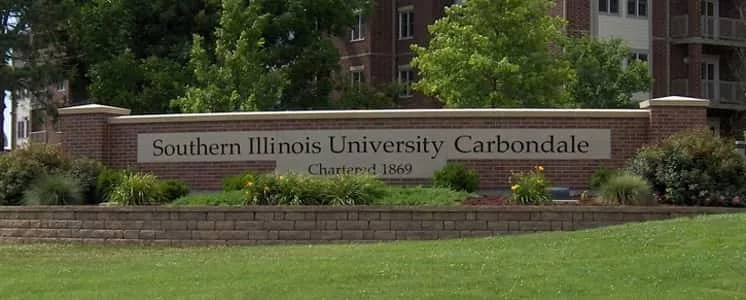
One of the best places in the world to see the 2024 total solar eclipse on Monday, April 8th is the Southern Illinois University campus in Carbondale.
The sky will go totally dark for 4 minutes, starting at 1:59 p.m., giving people a once in a lifetime opportunity to view the solar corona, the jacket of gasses that makes up the outer atmosphere of the Sun. The stunning ‘ring of fire’ corona is only visible when the moon covers the sun completely.
In Chicago, people should have their solar glasses ready so that they can watch the sky go dark at midday when the moon covers 95% of the sun. But the glorious corona will not be visible in Chicago because the darkness will not be total.
Sarah VanVooren, director of events and conferences, says SIU has been preparing for years to celebrate the 2024 solar eclipse sky show with a four-day festival of events and activities, including a special comic convention called Saluki-Con during that weekend and the Crossroads Astronomy, Science and Technology Expo in the Banterra Center.
Many events are free and they are family friendly.
For everything you need to know about the Southern Illinois Crossroads Eclipse Festival, check the website eclipse.siu.edu/festival/. Click the “visit” link to find campsites, accommodations and even an option to sleep in a twin bed in an SIU residence hall.
On the day of the eclipse, SIU is partnering with the Adler Planetarium in Chicago and NASA to host a giant viewing party in Saluki Stadium. The guided viewing experience will feature Michelle Nichols of the Adler Planetarium and a cast of hosts and scientists. The stadium scoreboard and big screens will provide dedicated solar telescope feeds of the eclipse from across North America.
In 2017, Carbondale experienced a total solar eclipse, welcoming crowds with a great experience. Cloudy weather could diminish the view of the eclipse, but depending on the level and thickness of the clouds, people may get a brief glimpse of the eclipse in spite of cloudy skies.
People who can’t make it to an eclipse viewing on April 8th will have to wait until August of 2044 for the next solar eclipse that is visible from the contiguous United States. For another total solar eclipse that passes over Southern Illinois, the wait will be 350 years.
By KEVIN BESSLER for the Illinois Radio Network
